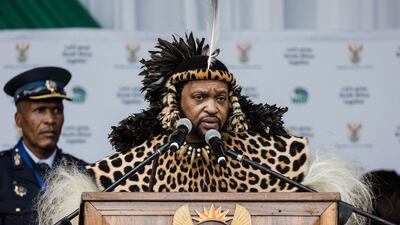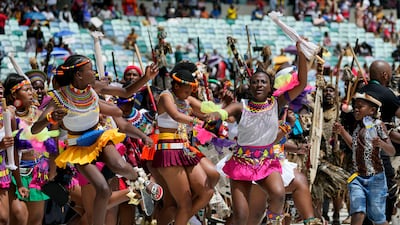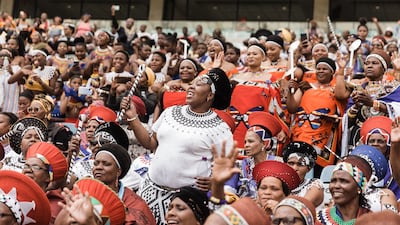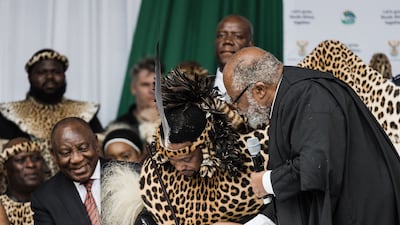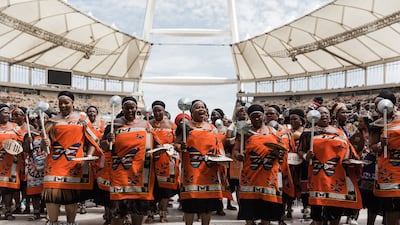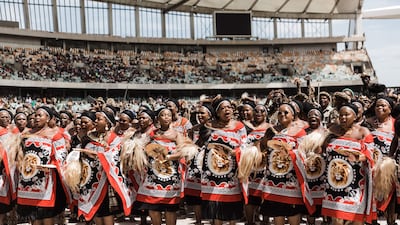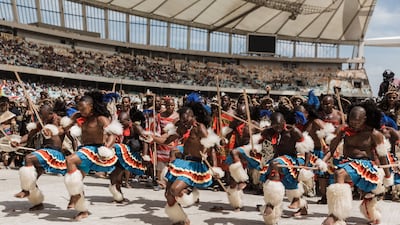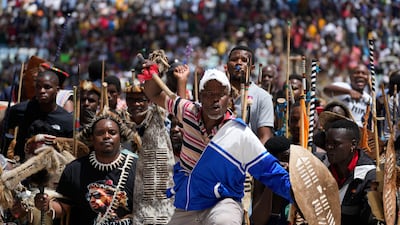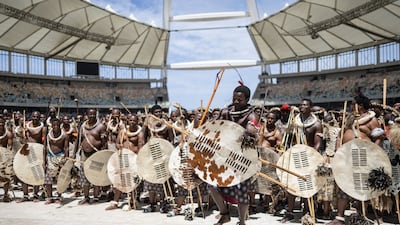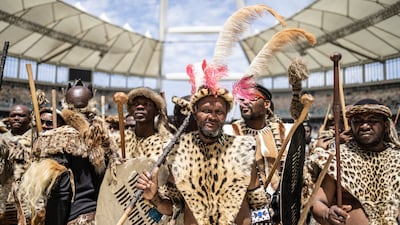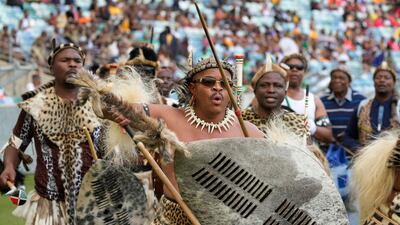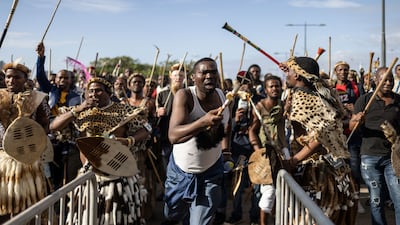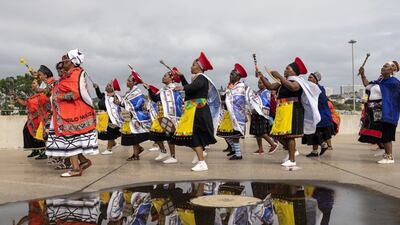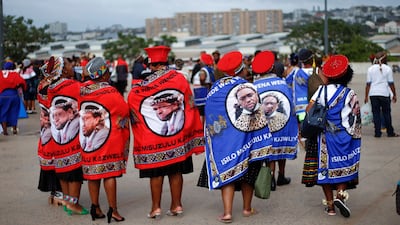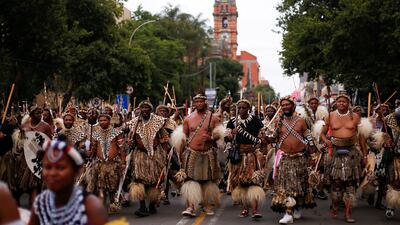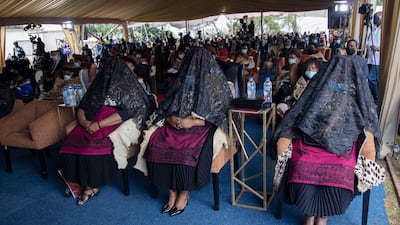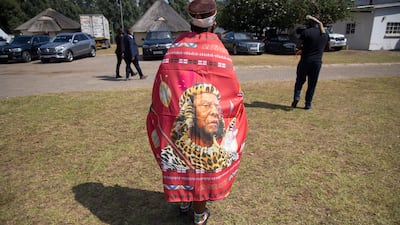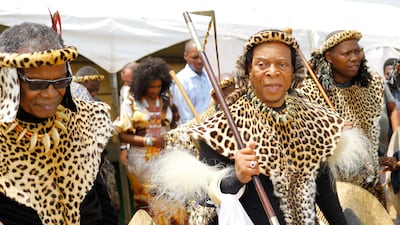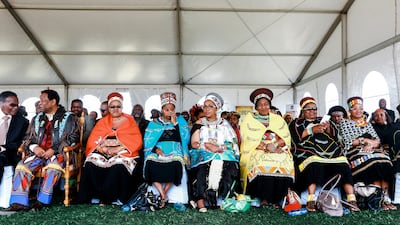Tens of thousands of South Africa's Zulus donned traditional attire for the state coronation of their new king in a ceremony that appeared to finally end a bitter succession feud.
King Misuzulu ka Zwelithini took the throne of South Africa's richest and most influential traditional monarchy to lead the 11 million-strong Zulu nation.
Warriors in leopard skins and carrying sticks and cow-hide shields saluted their new monarch, while choirs of young women sang and danced in Durban's Moses Mabhida Stadium.
The ceremony in the coastal city took place with the country on high alert after American intelligence agencies gave a warning of a possible terrorist attack this weekend on a financial district outside Johannesburg.
The US, UK and others warned people to avoid crowds in the Sandton area over concern a cell linked the ISIS extremist group was planning an attack.

The alert did not dampen the enthusiasm of tens of thousands at the Durban football stadium, where Saturday's Zulu coronation was the first for more than 50 years and the first where the Zulu king was recognised by a black president. The last coronation, in 1971, was conducted under the former Apartheid government.
The ceremony was given rolling live coverage on all of South Africa's largest television stations and media outlets.
“It's a great day today,” said Linda Buthelezi, a warrior in his 20s who had spent three weeks making his traditional clothing for the occasion.
“We haven't done this for 50 years. This is going to bring us back to our culture.”
Sanele Mfanupeni, another attendee, said the death of the previous king, Goodwill Zwelithini, had left the Zulu people without a father figure.
“We are celebrating, it's like a new cycle where we are welcoming our new king. Our last king was inaugurated in 1971 and all the people who are here were not there for that. So now we are plotting our own history. We are viewing our own history, we are going to tell our children about this.”
While the king has no legislative powers, he acts as the custodian of Zulu traditions and customs and is viewed by many as a moral guide.
In July 2021, before the succession was settled, the new king appealed for a halt to rioting that broke out in KwaZulu-Natal province after the arrest of former President Jacob Zuma, a proud Zulu, for contempt of court.
The death of the former king in March 2021 of a diabetes-related illness set off a bitter feud over the succession that has since spilt into the courts.
The former king left six wives and at least 28 children.
The new king is the first son of the former king's third wife. But the late king's first wife, Queen Sibongile Dlamini, backed her son, Prince Simakade Zulu, and a third prince was put forward by some of the late king's brothers.
The challengers have since unsuccessfully turned to the courts to try to stop the new king from taking the throne.
Prof Sihawukele Ngubane of Kwazulu Natal University, said: “I think it's a victory for his majesty that Saturday is going ahead.”

He said the king still played a major role in Zulu life.
He said: “His authority is a traditional authority because he looks after the traditions of the people and the customs. He makes sure that these are observed by conducting ceremonies that uphold the culture of the Zulu people and also to protect the history of the people.”
The head of the Anglican church in South Africa, Archbishop Thabo Makgoba, also anointed the new king.
"As you embark upon your reign as king of the nation that is recognised internationally as one of the greatest in Africa, I believe you are being called to step up and emulate the highest traditions of your ancestors," he said.
Zulus account for a fifth of South Africa's population and are the biggest ethnic group in the country. The South African government recognises six traditional monarchies, with the Zulu royal household having the biggest government subsidy, amounting to around 12 million Dirham each year.
